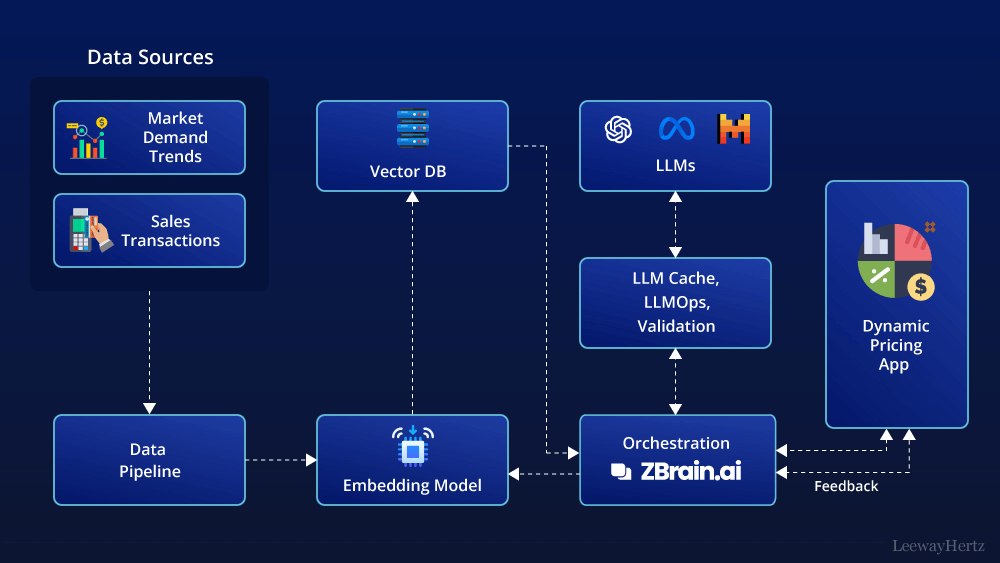Imagine a world where you can predict your customers’ needs before they even know them themselves. This is the reality of modern CRM strategies.
If you’ve ever felt overwhelmed by the rapid changes in technology and customer expectations, you’re not alone. As businesses strive to keep up, CRM strategies have evolved beyond basic data storage, morphing into sophisticated systems that leverage AI and personalization to enhance customer relationships.
You are at the heart of these transformations, and understanding them could be your key to staying ahead in the competitive market. This article will guide you through the evolution of CRM strategies, revealing how you can harness these advancements to not only meet but exceed your customers’ expectations. By the end, you’ll be equipped with the insights needed to adapt, innovate, and thrive. Curious about how CRM has transformed from simple Rolodex systems to cutting-edge AI-powered tools? Let’s dive in and explore the future of CRM together.

Credit: www.marketingevolution.com
Introduction: Crm Strategy Isn’t What It Used To Be
Customer Relationship Management (CRM) strategies have undergone significant changes over the years. In the past, CRM focused mainly on collecting customer data and managing interactions. Today, it integrates advanced technology like artificial intelligence (AI) to offer personalized experiences. Businesses now use AI to analyze customer behavior and predict future needs, making interactions more meaningful.
Personalization has become a key element, with companies tailoring services and products to individual preferences. This shift has been driven by the need to enhance customer satisfaction and loyalty. As technology continues to evolve, CRM strategies must adapt. Future trends may include more automated processes and real-time data analysis.
Companies that embrace these changes can better meet customer expectations. By staying ahead of trends, businesses can maintain strong relationships with their customers. This ongoing evolution highlights the importance of innovation in CRM strategies.
A Brief History Of Crm: From Rolodex To Cloud Software
CRM started as a simple way to keep track of contacts. Early on, businesses used Rolodexes, which were small rotating files where cards with contact information were stored. These were manual systems and required a lot of effort to update.
As technology advanced, databases and software began to replace these manual methods. The introduction of computer systems allowed businesses to store and manage customer data more efficiently. In the 1990s, CRM software started to become popular, offering features like tracking interactions and managing sales leads.
By the 2000s, CRM moved to the cloud, making it easier for companies to access data anywhere, anytime. Cloud-based CRM software brought flexibility and scalability, allowing businesses to adapt quickly to changing needs. Today, CRM systems are integrating AI and personalization, offering more tailored customer experiences and helping businesses anticipate customer needs.
The Shift From Data Storage To Relationship Intelligence
Customer relationship management (CRM) has changed over the years. It started as a way to store data. Now, it focuses on building strong customer relationships. Companies use CRM to know more about their customers. This helps them offer better services.
Relationship intelligence means understanding customer needs and preferences. It is not just about having data; it is about using it wisely. Artificial intelligence (AI) plays a big role in this change. AI helps analyze data quickly. It provides insights into customer behavior.
Personalization is another trend. Businesses can tailor their services to each customer. This makes customers feel valued. Future trends will likely bring more changes. Companies must keep up with new technology. This ensures they meet customer expectations. Overall, the focus is on building trust and loyalty.
CRM strategies continue to evolve with these new tools and methods.
How Ai Is Transforming Crm Strategy Today
Artificial Intelligence is changing how businesses use Customer Relationship Management (CRM) systems. AI tools help companies understand customer behavior better. They analyze data to find patterns and predict what customers might want next. This means businesses can offer more personalized experiences.
Chatbots powered by AI can talk to customers 24/7, answering questions quickly and efficiently. These bots learn from every conversation, improving over time. AI also helps in sorting and managing large amounts of data, making it easier for businesses to focus on important tasks.
By automating routine processes, companies save time and resources. This leads to better customer service and satisfaction. As AI becomes more advanced, CRM strategies will continue to evolve, helping businesses stay ahead in a competitive market. Embracing AI in CRM is important for businesses looking to improve their customer interactions and grow.
Hyper-personalization: Meeting Customers At The Micro Level
Meeting customers at the micro level involves tailoring experiences to individual preferences. Today, businesses aim to understand each customer’s unique needs. This approach goes beyond general personalization. Instead, it focuses on details like past purchases and browsing habits. With AI technology, companies can analyze vast amounts of data.
This helps in crafting messages and offers that truly resonate. Imagine a shopping experience where every recommendation feels just right. Such precision enhances customer satisfaction and loyalty. Trust builds as customers feel valued and understood. It’s about creating a bond, not just a transaction.
In a world full of choices, personalized interactions stand out. They make the customer journey smoother and more enjoyable. Businesses that embrace hyper-personalization can expect stronger relationships. It’s a strategy that benefits both the company and the customer.
Omnichannel Engagement: Crm Across Every Touchpoint
Businesses today connect with customers through many channels. CRM systems manage these interactions. Whether through social media, email, or in-store visits, each touchpoint offers a chance to engage. AI helps in understanding customer preferences. Personalized messages make interactions feel more human.
These tools collect data from every channel. They then use this data to predict needs and wants. Companies can offer tailored experiences based on this information. Consistency in messaging across all platforms builds trust. Customers expect seamless transitions between online and offline experiences.
A well-integrated CRM ensures this smooth flow. This approach enhances customer satisfaction. Businesses that adapt to these trends can stay competitive. Embracing technology in CRM strategies is crucial for future success.
Predictive Analytics: Anticipating Customer Needs Before They Ask
Predictive analytics is changing how businesses understand their customers. This tool helps companies guess what customers might want. It looks at past actions and behavior. With this information, companies can make better decisions. They know what products or services to suggest.
This can lead to happier customers. Businesses save time and resources by focusing on what matters. Predictive analytics is not just about numbers. It’s about understanding people better. This approach helps build stronger relationships. Customers feel understood and valued. They receive offers that match their needs.
This makes interactions smoother and more personal. In today’s world, being one step ahead is crucial. Predictive analytics gives businesses that edge. As technology grows, so does the ability to anticipate needs. This is the future of customer relationships.
The Rise Of Conversational Crm (chatbots Voice Messaging)
Conversational CRM is changing how businesses interact with customers. Chatbots and voice messaging are leading this shift. They help companies offer fast, 24/7 support. Chatbots handle basic questions, freeing up human agents for complex issues. Voice messaging adds a personal touch, making interactions feel more natural.
Customers can speak to a system as if they are talking to a friend. This approach makes people feel heard and valued. Both tools learn from past interactions, improving over time. They can predict customer needs and offer personalized suggestions.
Businesses using these tools see increased satisfaction and loyalty. As technology improves, conversational CRM will continue to evolve, becoming an essential part of customer service strategy.
Future Trends: What’s Next For Crm Strategy?
Predicting the future of CRM strategy involves examining emerging technologies and changing consumer preferences. Artificial intelligence continues to integrate into CRM systems, enhancing customer interaction through automated responses and data analysis. This technology helps businesses understand customer needs better and respond quickly.
Personalization also plays a crucial role. Customers expect tailored experiences, and CRM systems must adapt to deliver personalized content and offers. Another trend is the rise of mobile CRM. With more people accessing services on mobile devices, CRM strategies must be optimized for mobile platforms.
Data privacy remains a concern. Companies need to ensure the security of customer data, complying with regulations and building trust. As businesses grow globally, CRM strategies must cater to diverse cultures and languages, ensuring effective communication. These trends point to a future where CRM strategies are more responsive, secure, and personalized, meeting the evolving expectations of customers worldwide.
Final Thoughts: Stay Agile Stay Customer-centric
Staying agile and focusing on customers is key in today’s fast-changing world. Businesses need to keep up with new ideas and technology to make sure their customer relationship management (CRM) strategies stay effective. AI plays a big role in helping companies understand their customers better.
It can analyze data quickly and provide insights that were not possible before. Personalization is also important. Customers want to feel special and valued. Tailoring experiences to meet individual needs can lead to better relationships and loyalty. Future trends in CRM might include even more advanced technology and ways to connect with customers.
Companies should keep an eye on these changes. It’s important to be flexible and ready to adapt strategies as new trends emerge. By focusing on customer needs and staying agile, businesses can build strong relationships and continue to grow.

Credit: www.leewayhertz.com
Frequently Asked Questions
What Is The History Of Crm?
CRM has evolved from simple Rolodex systems to advanced cloud-based software. Initially, it focused on data storage. Over time, it integrated relationship intelligence. This shift enhanced customer interactions and data management. Today’s CRM systems leverage AI to offer personalized experiences and predictive analytics, transforming how businesses engage with customers.
How Is Ai Transforming Crm Strategy?
AI is revolutionizing CRM by automating routine tasks and providing deep insights. It analyzes data to predict customer behaviors. This enables personalized marketing strategies. AI-driven chatbots enhance customer service by offering instant support. Overall, AI improves efficiency and customer satisfaction in CRM strategies.
What Is Hyper-personalization In Crm?
Hyper-personalization tailors customer interactions at a micro-level. It uses data analytics to understand individual preferences. This approach creates unique experiences for each customer. By addressing specific needs, businesses can build stronger relationships. Hyper-personalization enhances customer loyalty and drives engagement in a competitive market.
How Does Omnichannel Engagement Benefit Crm?
Omnichannel engagement ensures seamless interactions across all touchpoints. It integrates online and offline channels, providing a consistent experience. Customers can engage through their preferred platforms. This approach improves customer satisfaction and retention. It allows businesses to respond promptly and effectively to customer needs.
Conclusion
CRM strategies keep evolving rapidly. AI shapes new possibilities daily. Personalization is crucial now more than ever. Businesses need to understand customers deeply. Omnichannel engagement remains a vital aspect. Predictive analytics help anticipate customer needs early. Conversational CRM enhances communication.
Future trends promise continuous change. Staying agile ensures businesses remain relevant. Customer-centric approaches foster loyalty. Embrace these changes wisely. CRM’s future is bright with innovation. Always adapt to stay ahead. The evolution continues, promising new opportunities. Embrace technology for better relationships.
Keep pace with CRM’s dynamic landscape. Prioritize customer satisfaction consistently.




Pingback: Getresponse Review: Ultimate Tool for Email Funnels & Automation - Digital Boat
Pingback: Aweber Review 2025: Elevate Small Biz Email Marketing - Digital Boat
Pingback: Top 5 CRM Tools For Small Businesses In 2025: Must-Haves - Digital Boat